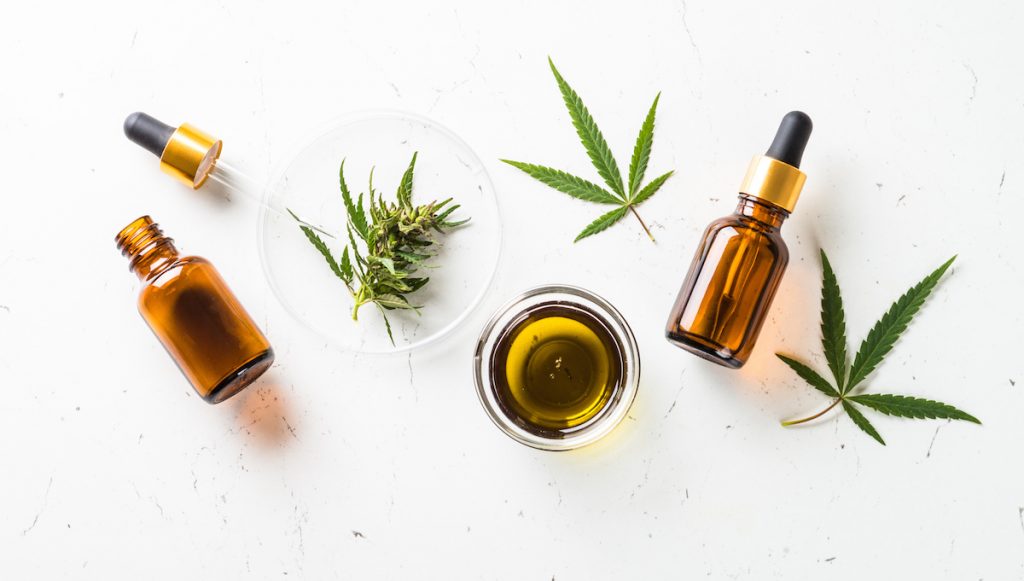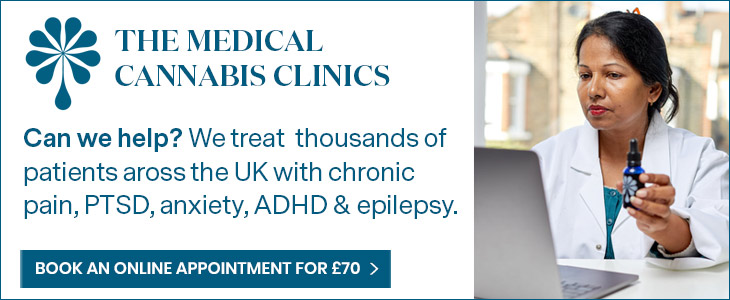Depression and anxiety are two of the most common mental health conditions that can have a debilitating effect on a person’s day to day life. Could CBD help to ease some of the symptoms?
Autumn and winter can cause a rise in seasonal depression or it can make existing symptoms feel more difficult to overcome. It’s estimated that 1 in 4 people will experience a mental health problem each year in England alone.
The statistics for depression rose dramatically during lockdown. Figures from the Office of National Statistics revealed that between January and March 2021 during the last lockdown, 21 per cent of adults experienced a form of depression.
What are the symptoms of depression?
Depression can cause a variety of symptoms such as a persistent low mood, unhappiness, low self-esteem or feeling tearful. It can cause a loss of interest in things you used to enjoy, withdrawal from social settings, increased tiredness or sleep problems. In severe forms, it may also cause suicidal thoughts.
Seasonal depression happens or seasonal affective disorder (SAD) happens when depression happens in a seasonal pattern. The symptoms are usually more severe during the winter months when it’s cold and dark.
What is CBD?
CBD is a cannabinoid found in the cannabis plant. It is non-toxic unlike the cannabinoid tetrahydrocannabinol (THC).
We have different receptors throughout our bodies. It is thought that CBD interacts with these receptors by giving them signals. In particular, it may interact with the receptors, CB1 and CB2 which are found in the immune and nervous systems.
How does CBD work for depression?
There are a few different ways in which CBD may benefit people with depression.
Serotonin
It is thought that CBD appears to have a positive interaction with the hormone, serotonin in our brains. Serotonin is involved with a lot of different functions in our bodies but it impacts a person’s happiness and emotional well-being. Low serotonin levels are associated with depression.
A review of existing studies showed that CBD may have anti-stress effects that could reduce depression.
Another study examined how CBD could make a difference to people who struggle with this disorder. Participants in the study were given 400mg of CBD or a placebo. Researchers discovered that those given CBD reported less anxiety than those on the placebo. Which suggests it may work for those who struggle with the winter blues.
Sleep
A study examined if CBD could help to improve sleep quality while reducing anxiety. The study involved 72 patients with 47 experiencing anxiety and 25 with poor quality sleep. Each participant was given 25mg of CBD daily then asked to self-report how they felt afterwards. The researchers wrote that 79.2 per cent recorded lower feelings of anxiety while 66.7 per cent said their sleep had improved after the first month.

How do I take CBD for depression?
There is no right or wrong way to take CBD for depression. It comes down to personal preference although some of the popular methods include:
Vaping
Vaping CBD is one of the fastest ways to absorb a daily dose. CBD e-liquids are available in different flavours and strengths depending on what you need. It is worth making sure that the liquid you buy has been tested and is from a reputable source. It is absorbed into the bloodstream via capillaries in the lungs.
Oils or tinctures
Oils and tinctures can be an easy way to take CBD. The main difference between the two is that tinctures are made with alcohol and oils usually have an oil carrier such as hemp or rapeseed. They can come in different dose levels that are designed to be popped under the tongue for a few minutes. The oil is absorbed through the mucous membrane there and into the bloodstream.
Edibles
Edibles offer a discreet, and delicious, way to take CBD daily. They are often available in different dose levels as gummies, brownies even peanut butter. Edibles have a slower release than oils or tinctures as they have to be absorbed through the digestive system first. However, this may mean that the body absorbs less of the CBD than it would through other methods.
What is the best CBD for depression?
No one oil is better for depression than another. If you aren’t keen on vaping, oils or edibles then are other ways to introduce CBD into your self-care routine.
Why not try CBD bath bombs, hot chocolates, massage oils or even skincare?

How quickly does CBD work for depression?
While most medications for depression may take weeks to build up in the system, CBD is may provide faster relief. A study from 2019 reported that CBD has a faster antidepressant-like effect.
The longer you take CBD, the better the effect it may have as it builds up in the body. Some CBD is faster acting than others. Quicker acting methods are the ones that take less travelling through our systems to be absorbed so the mouth, vagina or lungs are quickest. Edibles have to travel through the digestive system before they can be broken down and absorbed into the bloodstream.
Patches and vaping are other quick methods of taking CBD.
How much CBD do I take?
This will vary from person to person depending on height, weight or symptom management. It is always best to start low or small before building up to stronger or more frequent doses.
Keeping a journal of symptom changes is also recommended where you can start to see the effect of the CBD over time. Don’t be discouraged if it takes longer than you expect or a particular brand doesn’t work for you as it can take a while to get the dosage right.
Would CBD help with depression and anxiety?
CBD is also thought to help with anxiety as well as depression. The two conditions are very closely linked.
A study from 2011 examined the effect of CBD on people with SAD. The participants were given either 400 mg of oral CBD or a placebo. Those who were in the CBD group reported feeling less anxiety.
The post CBD guides: Can CBD help with depression? appeared first on Cannabis Health News.


